society
AMBODE: A TESTIMONIAL
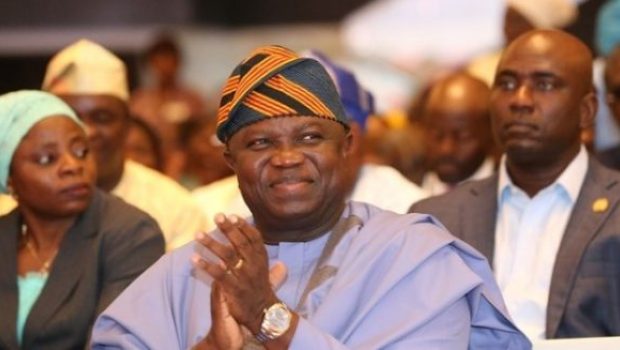
By Yemi Ajayi
Before the advent of the Fashola administration, driving through Oshodi, which I had to do to get to my office then at Fatai Atere Way, was one of the most harrowing experiences I had to go through five days a week.
The two alternative routes to my office, passing through Ikorodu Road to connect Ilupeju By-pass or through the Airport Road to link up Ladipo via Five Star, were to say the least equally unattractive. The traffic on those alternative routes was as hellish as that of Oshodi.
Then, one Sunday after the first New Year of having Fashola as governor, I drove through Oshodi on my way to work and my “flabber was gasted.”
The orderly chaos that was the defining persona of Oshodi was totally absent. I was confronted with a new Oshodi devoid of its characteristic heavy human and vehicular traffic. There were phalanxes of policemen here and there to prevent a breach of the peace after a dawn demolition of illegal structures that also provided habitats for criminals who tormented motorists and passers-by.
That singular act marked the beginning of my romance with Fashola. I became his implacable supporter. He had by restoring order to Oshodi not only reduced my commuting time from home to work, my daily fuel consumption dropped by as much as 55%.
In a nation devoid of a standard metric for measuring performance of public office holders, it also set for me a template in assessing leaders.
It is in that light I’m viewing the ongoing crisis of succession in Lagos State being championed by those trying to deny Fashola’s successor, Akinwunmi Ambode, the conventional right of first refusal.
Many reasons have been pushed into the public space on why Ambode must give way to Jide Sanwo-Olu, the favourite pick of Tinubu’s political machinery, the Mandate Group, and they range from the ridiculous to the sublime.
Unfortunately, none of the reasons I’ve come across so far has much to do with majority of Lagosians on whose votes Ambode is in office.
As someone who has lived in Lagos for almost 40 years, I can say that Ambode has added to the building blocks of the foundation laid by his predecessors. Lagos to me is better now in terms of infrastructure and service delivery in some areas than it was before.
The governor has wormed his ways into my heart, and those of millions of others, with the construction of inner road network especially within the Ifako-Ijaiye Alimosho corridor.
Within my Alakuko neighbourhood, there are at least nine ongoing inner road projects. Some of them are in areas where the residents had lost hope of ever feeling government’s presence.
He has made interventions in other areas such as tackling Lagos perennial traffic congestion through the construction of laybys, flyovers and pedestrian bridges.
I can’t forget my first day of driving through Ojodu-Berger in a bid to access the Lagos-Ibadan Expressway. It was a detour I had to grudgingly make as that route is one I avoid like a plague for its notorious traffic.
But on this day, I had to take my chances as all alternative routes to access the Lagos-Ibadan Expressway through Agidingbi to connect Otedola Underpass were choked with traffic.
Surprisingly, the Ojodu-Berger axis was not only uncharacteristically free from traffic, I could’ve missed my way due to the changed landscape that followed the reconstruction of the area. The reconstruction had not only led to the removal of all traffic impediments, but saw to the expansion of the road.
There is no doubt that while Ambode had done well in the area of infrastructure, his performance has been average in other areas, especially in refuse disposal. Many residents are also not happy with his administration with the hike in Land Use charges.
However, as a property owner, I can say that the hike in the Land Use charges isn’t as hurtful as it was made to be, especially after the governor bowed to public outcry and ordered a review.
Although what I paid as Land Use charges is now far higher than what I had been paying in the last eight years, I don’t need to rob a bank or take a loan to pay up.
But his performance notwithstanding, there has been an intense campaign to ensure he doesn’t return in an election that is his to lose.
The governor has been accused of not deserving a second term for not servicing the greed of APC leaders in the state, among others.
But in all this, where stands the interest of the electorate who put in Ambode in office and whose welfare is the purpose of governance?
Unfortunately, the electorate are being railroaded to rally behind his main challenger for the post, Jide Sanwo-Olu.
Certainly the APC leaders are pursuing a selfish agenda which they’re deceitfully dressing as a push for better life for Lagosians.
For what it’s worth, Ambode might not have done well in all areas of governance, but he has performed well enough to earn a second term in office.
Those who’re pushing the argument that he should go and test his popularity at the party’s direct primary are being disingenuous in their advocacy. The direct primary, abinitio, has been rigged for him to lose.
That argument would have had any veneer of credibility if all other elective posts had been thrown opened for contest.
So far, I’m not aware that Senators Remi Tinubu and Adeola (Yayi) have any serious challengers for their tickets. That is so because the party establishment has decreed it be.
If it’s sauce for the senators and others, it should be sauce for Ambode.
There is no doubt that the political fortune of Ambode and President Muhammadu Buhari are tied together, which is the more reason why good reasoning should prevail in this matter. More worrisome to me is the economic impact of this needless impasse when all of us know that instability in Lagos would have spiral effects on the national economy.
It’s therefore morally and political expedient to allow the governor finish the good work he has been doing.
Ajayi, a journalist, writes from Lagos
society
Tinubu Seeks Nigerians Forgiveness During Ramadan, Calls for National Reconciliation
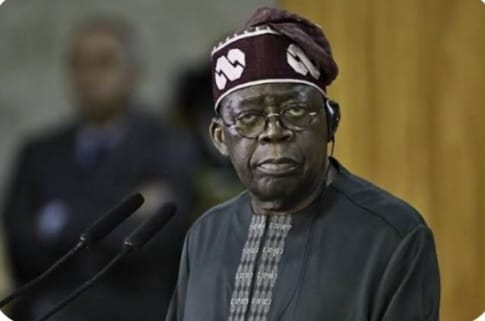
Tinubu Seeks Nigerians Forgiveness During Ramadan, Calls for National Reconciliation
By George Omagbemi Sylvester | Published by SaharaWeeklyNG
“At State House Tafsir in Abuja, President urges unity, tolerance, and prayers for stability as he reaffirms commitment to tackling Nigeria’s economic and security challenges.”
President Bola Ahmed Tinubu has appealed to Nigerians for forgiveness over any perceived wrongdoing, urging citizens to embrace reconciliation and unity during the holy month of Ramadan.
Speaking during a Ramadan Tafsir held at the State House in Abuja, the President said, “If I have sinned against you, forgive me as Nigerians,” stressing the importance of forgiveness, tolerance, and national cohesion.
Tinubu noted that Ramadan represents a period of spiritual reflection, self-discipline, and compassion, calling on Nigerians to use the season to promote peace and mutual understanding across religious and ethnic divides.
The President also encouraged citizens to pray for the nation’s stability and progress, reaffirming his administration’s commitment to addressing economic and security challenges facing the country.
The Ramadan Tafsir, an annual religious gathering attended by government officials, Islamic scholars, and dignitaries, forms part of activities marking the fasting period observed by Muslims worldwide.
society
You Against Crime Founder Tayo Folorunsho Praises Winners of Abuja Schools Festival.

You Against Crime Founder Tayo Folorunsho Praises Winners of Abuja Schools Festival.
Abuja, Nigeria – The maiden edition of the You Against Crime – Schools Festival 2026 Grand Finale has concluded, marking a significant milestone in youth engagement and crime prevention efforts across the Federal Capital Territory (FCT).
The event, held at the University of Abuja, brought together 78 secondary schools from the six Area Councils of Abuja, with the top six schools competing in the Grand Finale.
*Winners Emerge*
Tudunwada School, Bwari took the top spot, followed closely by The Golden Crest Royal in second place, and Government Secondary School, Kuje in third.
*CULTURE, THE CURE FOR CRIME*
The festival’s theme, “Culture, The Cure for Crime,” highlighted the importance of values, identity, mentorship, and positive engagement in preventing crime and shaping responsible citizenship among young people.
*DISTINGUISHED GUEST SPEAKERS*
Auwal Musa Rafsanjani, Chairman, Amnesty International, praised the initiative, saying, “This festival is a beacon of hope for our young people, promoting values and principles that can shape a brighter future for Nigeria.”
Aisha Mohammed, Head of Enlightenment & Re-orientation, Economic and Financial Crimes Commission, emphasized the importance of mentorship, stating, “Empowering young people with the right guidance and opportunities is key to preventing crime and building a stronger nation.”
*PARTNERSHIP AND SUPPORT*
The 2026 Grand Finale Edition was proudly sponsored by Civicx Technology Ltd Int’l, reinforcing a shared commitment to youth empowerment and crime prevention through cultural reorientation and innovation.
Tayo Folorunsho, Host & Founder, You Against Crime International, addressing the media and appealed to government agencies to support initiatives like this, targeting young minds early.
You Against Crime International is a movement advocating cultural change as a long-term solution to crime. The organization remains committed to advancing youth development, civic responsibility, and nation-building across Nigeria.
society
TICP Customs Launches Paperless Regime, Warns Against False Declarations
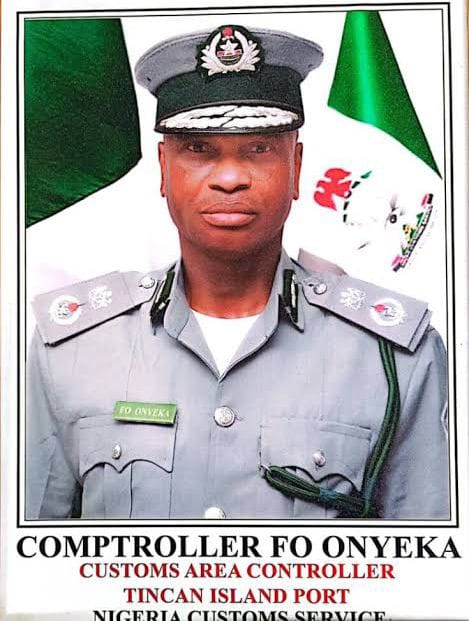
TICP Customs Launches Paperless Regime, Warns Against False Declarations
The Customs Area Controller of Tin Can Island Port Command of the Nigeria Customs Service (NCS), Comptroller Frank Onyeka, has launched a roadmap for the full implementation of a paperless regime at the command.
Onyeka disclosed this during a press briefing in Lagos, stating that the command was fully prepared for seamless digital operations ahead of the nationwide rollout scheduled for the second quarter of the year.
He described the engagement as the first in a series of consultations aimed at sensitising stakeholders on the strategies, operational framework and expectations under the new regime.
The controller commended the media for its constructive reportage since his assumption of office and sought continued collaboration to ensure the success of the initiative.
Presenting the command’s performance report, Onyeka said the Tin Can Island Command generated ₦609 billion in revenue in 2025, describing it as the highest in the history of the command.
He added that revenue collection rose from ₦116 billion recorded in January of the previous year to ₦145 billion in the corresponding period last month, representing an increase of over ₦29.9 billion.
Onyeka stated that his vision was to make the command known for trade efficiency, explaining that under the paperless regime, containers would be released without physical contact between Customs officers and clearing agents, provided declarations were accurate.
He credited the Comptroller-General of Customs, Bashir Adewale Adeniyi, for providing the leadership and strategic direction driving modernisation efforts across Customs formations nationwide.
The controller urged stakeholders to avoid false declarations and engage directly with the command to resolve concerns, emphasising that transparency and dialogue were essential to achieving efficient port operations.
He assured that consignments with clear scanning results and proper documentation would be released promptly, while those flagged by the risk management system would undergo physical examination, adding that the command would continue to collaborate with other agencies to reduce cargo dwell time and enhance port efficiency.
-

 celebrity radar - gossips6 months ago
celebrity radar - gossips6 months agoWhy Babangida’s Hilltop Home Became Nigeria’s Political “Mecca”
-

 society6 months ago
society6 months agoPower is a Loan, Not a Possession: The Sacred Duty of Planting People
-

 society5 months ago
society5 months agoReligion: Africa’s Oldest Weapon of Enslavement and the Forgotten Truth
-

 news6 months ago
news6 months agoTHE APPOINTMENT OF WASIU AYINDE BY THE FEDERAL GOVERNMENT AS AN AMBASSADOR SOUNDS EMBARRASSING



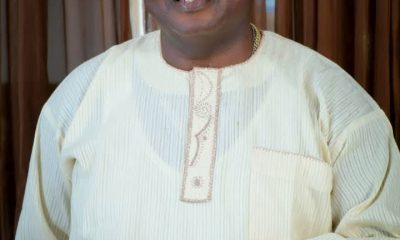

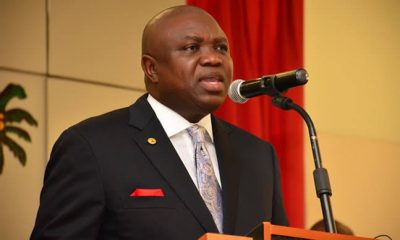




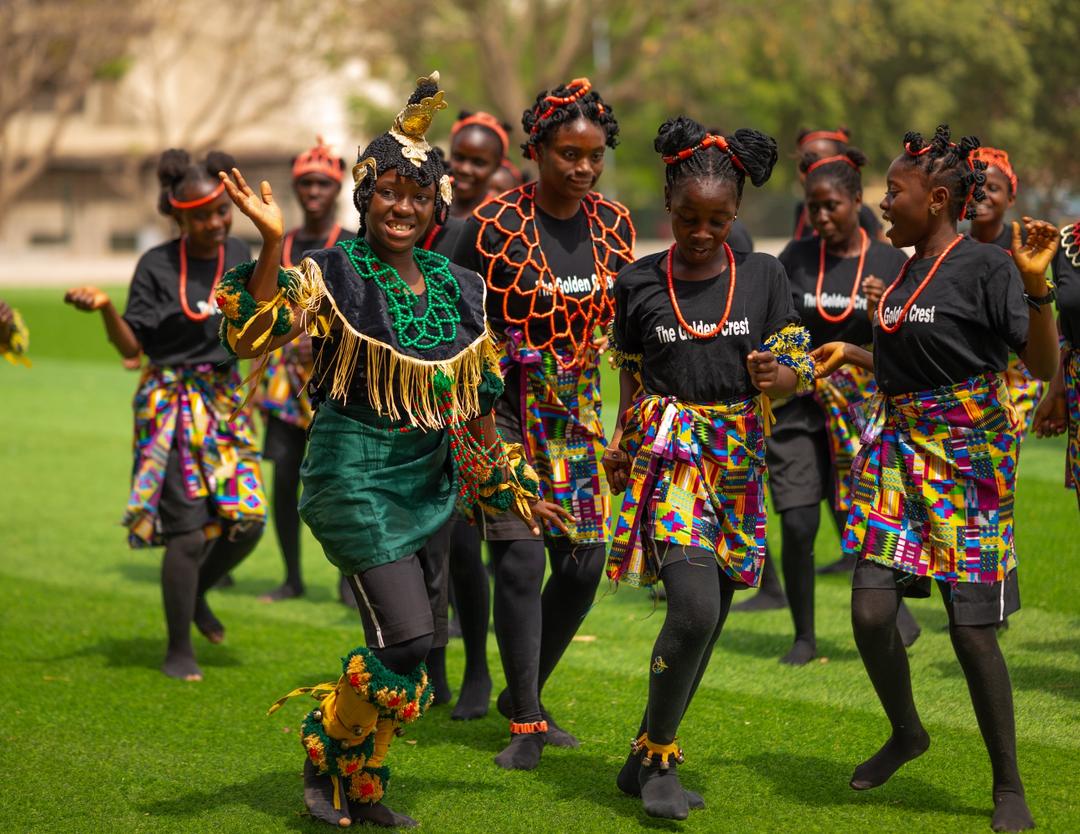
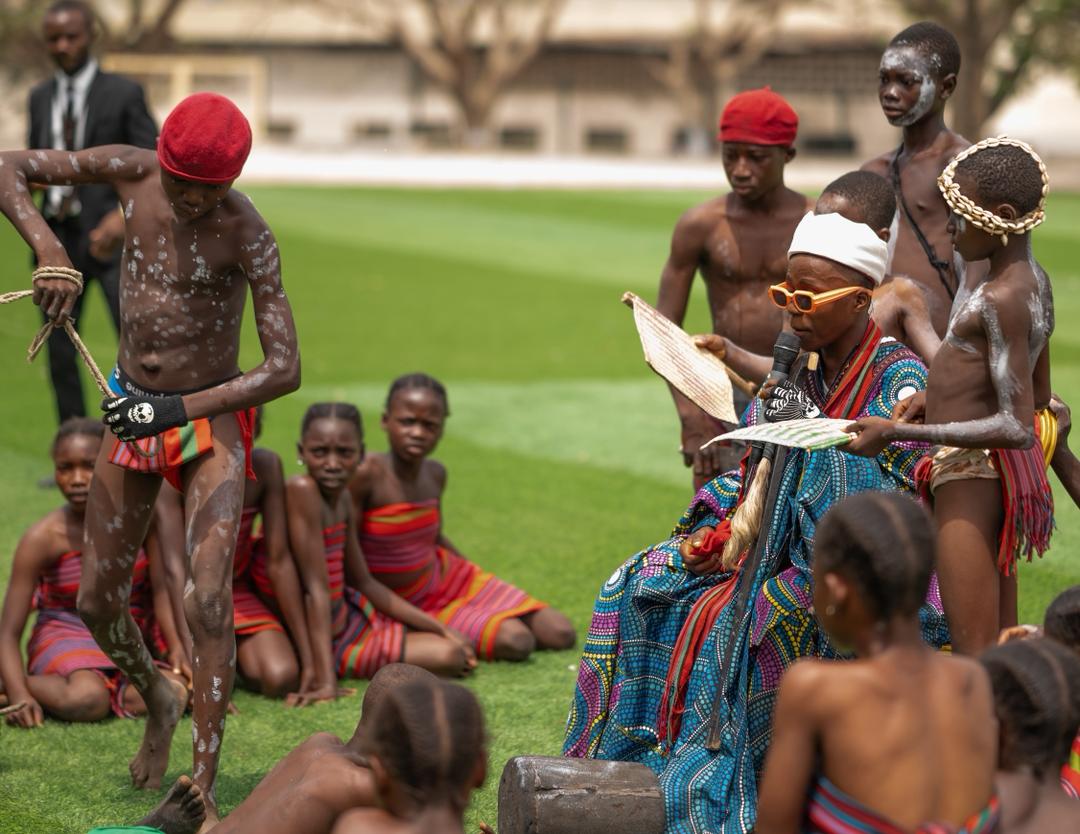

You must be logged in to post a comment Login